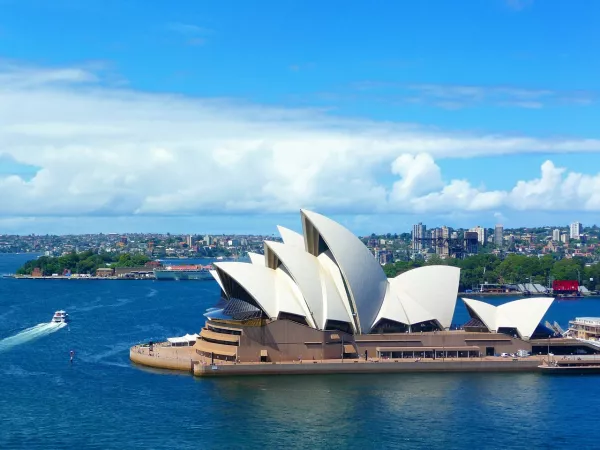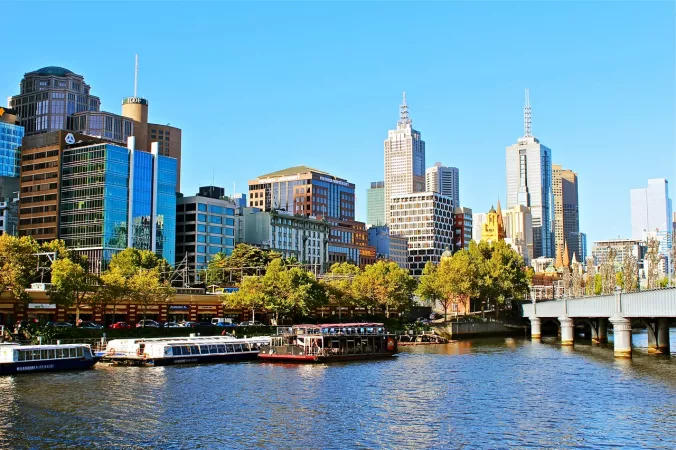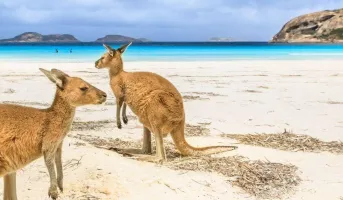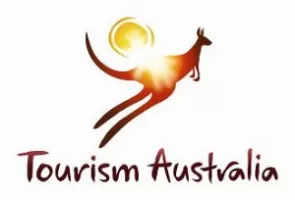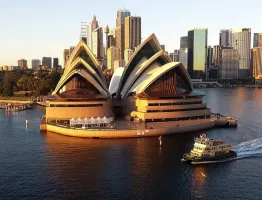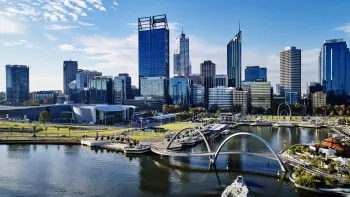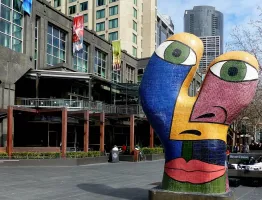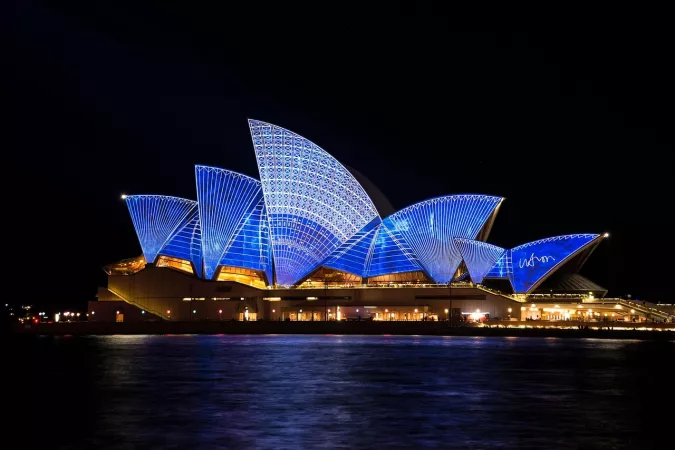
Australia
Duration
14 to 21 Days
14 to 21 Days
Best time to visit
Sep-Nov
Sep-Nov
Theme
Adventure, Wildlife, Beaches
Adventure, Wildlife, Beaches
Australia Travel Guide
Australia, known for its stunning landscapes, unique wildlife, and vibrant cities, is a diverse country located in the southern hemisphere. With a rich indigenous history and a multicultural population, Australia is famous for its iconic landmarks such as the Sydney Opera House, Great Barrier Reef, and Uluru. Its vast outback, beautiful beaches, and thriving food and wine scene attract millions of visitors each year.Top Attractions in Australia
- Sydney Opera House
- Great Barrier Reef
- Uluru (Ayers Rock)
- The Twelve Apostles
- Bondi Beach
Australia is Famous for
Breathtaking natural wonders like the Great Barrier Reef and unique wildlife such as kangaroos and koalas.Top Attractions in Australia
- Exploring the Great Barrier Reef
- Witnessing the beauty of Uluru at sunrise or sunset
- Surfing at Bondi Beach
- Visiting the vibrant city of Melbourne
- Sampling world-class wines in the Barossa Valley
What's Great about Travelling to Australia?
- Stunning natural beauty
- Diverse and vibrant cities
- Unique wildlife experiences
What's Not So Great about Travelling to Australia?
- Long distances between attractions
- High cost of living
- Extreme weather conditions in some regions
Travel Tips for Australia
- Obtain a visa before traveling
- Use sunscreen due to strong UV rays
- Respect the indigenous culture
Important Australia trip information
- Ideal Duration: 2-3 weeks to explore major attractions
- Best Time to Visit: September to November for pleasant weather
- Nearby Airports and Railway Stations: Major airports in Sydney, Melbourne, Brisbane; extensive railway network
Top 2 Places to visit in Australia
Per Person
93,990
*EXCLUDING APPLICABLE TAXES 4.9 Ratings
( 185 Reviews )
( 185 Reviews )
Per Person
2,50,000
*EXCLUDING APPLICABLE TAXES 5.0 Ratings
( 57 Reviews )
( 57 Reviews )
Per Person
2,19,900
*EXCLUDING APPLICABLE TAXES 4.9 Ratings
( 15 Reviews )
( 15 Reviews )
Per Person
930
*EXCLUDING APPLICABLE TAXES Per Person
38,115
*EXCLUDING APPLICABLE TAXES 5.0 Ratings
( 255 Reviews )
( 255 Reviews )
Per Person
975
*EXCLUDING APPLICABLE TAXES FAQ's on Australia
Q1: What is the best time to visit Australia?
Australia is a vast country with diverse climates. The best time to visit depends on the region you plan to explore. The southern parts like Sydney and Melbourne are great to visit in spring (September to November) and autumn (March to May) when the weather is mild. Northern areas like Cairns and Darwin are ideal to visit during the dry season from April to September. The summer months (December to February) are perfect for exploring the beaches and coastal areas.
Q2: Do I need a visa to travel to Australia?
Most visitors need a visa to enter Australia. The type of visa required depends on your nationality and the purpose of your visit. The Electronic Travel Authority (ETA) or eVisitor visa is common for tourists from eligible countries. Make sure to check the specific requirements for your country before traveling.
Q3: What are the must-visit attractions in Australia?
Australia is home to iconic landmarks such as the Sydney Opera House, Great Barrier Reef, Uluru, and the Great Ocean Road. Nature lovers can explore the Daintree Rainforest, Fraser Island, and the Blue Mountains. Don't miss out on the unique wildlife experiences in Kangaroo Island and the cultural sites like the Aboriginal rock art in Kakadu National Park.
Q4: Is Australia a safe place to travel?
Australia is generally a safe destination for travelers. However, like any other country, it's important to stay vigilant, especially in urban areas. Avoid isolated areas at night, be cautious of wildlife, and follow any safety warnings at beaches. Stay informed about local conditions and emergencies during your stay.
Q5: What is the local currency in Australia and can I use credit cards?
The local currency in Australia is the Australian Dollar (AUD). Credit cards are widely accepted in major establishments, but it's advisable to carry some cash for smaller vendors and markets. ATMs are easily accessible in cities and towns for convenient currency exchange.
Q6: What is the local cuisine like in Australia?
Australian cuisine is a fusion of multicultural influences, offering dishes like the iconic meat pies, seafood, BBQs, and Vegemite. Don't miss trying a traditional Aussie BBQ or indulging in fresh seafood along the coastal regions. For those with dietary preferences, vegetarian and vegan options are widely available in most restaurants.
Q7: What transportation options are available in Australia?
Australia offers various transportation options including domestic flights, trains, buses, and rental cars. In cities, public transport like trains, trams, and buses are convenient. For exploring remote areas or the Outback, consider renting a car for flexibility and convenience.
Q8: Are there any cultural norms or etiquette I should be aware of when visiting Australia?
When visiting Australia, it's important to respect the local Indigenous cultures and customs. Australians are generally friendly and laid-back, but it's customary to greet people with a smile and a handshake. Tipping is not mandatory but appreciated for good service. Remember to follow environmental guidelines, such as not littering in natural areas and respecting wildlife.
Q9: I am a travel agent. How can I buy travel leads of Australia?
Register yourself as a travel agent at agents.tripclap.com and then you can buy travel leads to Australia once your account is approved. For more details contact our support team at +91-8069186564 or support@tripclap.com
